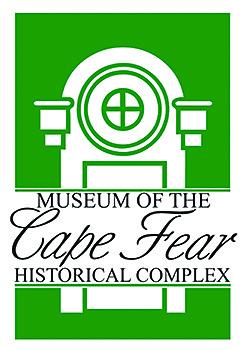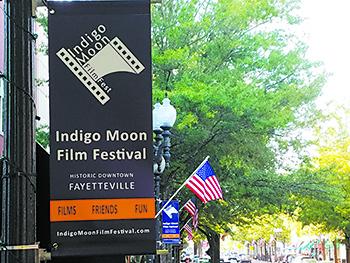 Theater companies, music groups, museums and other arts programs recently received grants from the Arts Council of Fayetteville-Cumberland County, many to support their 2022-23 performance seasons.
Theater companies, music groups, museums and other arts programs recently received grants from the Arts Council of Fayetteville-Cumberland County, many to support their 2022-23 performance seasons.
Other nonprofit groups and individual artists received “mini grants” for arts projects through December.
Bob Pinson, interim president and CEO of the Arts Council, said in a news release that the funding is being channeled to a broad spectrum of arts organizations.
“… We are reaching deeper into previously underserved areas of our community as evidenced by the many new applicants this year,” Pinson said.
In 2021-22, the Arts Council distributed almost $1 million in grants to Cumberland County arts and cultural nonprofit organizations, artists and municipalities, according to the release.
Theater companies
 The Gilbert Theater received a $30,000 grant to support its new season. The shows scheduled for 2022-23 are “The Man Who Shot Liberty Valance,” “The Sound of Music,” “The Complete Works of William Shakespeare (Abridged),” “All in the Timing,” and “[title of show].”
The Gilbert Theater received a $30,000 grant to support its new season. The shows scheduled for 2022-23 are “The Man Who Shot Liberty Valance,” “The Sound of Music,” “The Complete Works of William Shakespeare (Abridged),” “All in the Timing,” and “[title of show].”
“As we sprint toward our 30th season, I can only hope that we are able to secure and expand the legacy left to us by Lynn Pryer,” Artistic Director Lawrence Carlisle III said in a news release.
Pryer was the founder of Gilbert Theater.
 Sweet Tea Shakespeare received a $27,500 grant for its new season. The funding, according to a news release, includes Green Tea, a Shakespeare company for youths.
Sweet Tea Shakespeare received a $27,500 grant for its new season. The funding, according to a news release, includes Green Tea, a Shakespeare company for youths.
Sweet Tea’s upcoming season includes “Richard III,” which will run in October in Raleigh; “20,000 Leagues Under the Sea,” set for January in Fayetteville; “Twelfth Night,” set for June in Fayetteville; “Jane Eyre,” June in Raleigh; and “A Midsummer Night’s Dream,” July in Raleigh.
The Cumberland County Public Library received a $9,000 grant for its 14th annual Cumberland County Storytelling Festival, scheduled March 1-31.
“Storytelling and music allow for listeners of all ages to use their imagination as they explore, discover and learn,” library director Faith Phillips said in a news release.
Museums and galleries
Cape Fear Studios was awarded a $7,200 grant to help with a 32nd season of art exhibitions that include the National 2D competition, Alpha Romeo Tango call for military artists and Cabin Fever, among others.
 A $3,500 cultural tourism grant will support “Courage & Compassion: The Legacy of the Bielski Brothers,” a temporary exhibit at the Airborne & Special Operations Museum.
A $3,500 cultural tourism grant will support “Courage & Compassion: The Legacy of the Bielski Brothers,” a temporary exhibit at the Airborne & Special Operations Museum.
“On loan from the Florida Holocaust Museum, ‘Courage and Compassion’ is a multimedia exhibition showcasing the heroic efforts of three brothers who helped save more than 1,200 people from the Nazis during World War II while taking refuge in the forests surrounding Novogrudok, Belarus,” says Renee Lane, executive director of the downtown museum, in a news release. “The Bielski brothers led the group in acts of sabotage and defense against the Nazis and through their leadership the group survived starvation, harsh winters and the threat of Nazis and their collaborators.”
The exhibit is on loan until Nov. 3.
“Given world events in eastern Europe,” Lane says, “it is very timely.”
 The Museum of the Cape Fear Historical Complex Foundation was awarded an $11,000 grant to support its “History LIVE! at the 1897 Poe House” series, which includes historical re-enactments, artist demonstrations, musical performances and live theater. In addition, the museum was awarded $5,000 for its monthly “History-to-Go” kits, which are free for children who visit the museum.
The Museum of the Cape Fear Historical Complex Foundation was awarded an $11,000 grant to support its “History LIVE! at the 1897 Poe House” series, which includes historical re-enactments, artist demonstrations, musical performances and live theater. In addition, the museum was awarded $5,000 for its monthly “History-to-Go” kits, which are free for children who visit the museum.
“The Arts Council grant makes it possible for us to provide engaging historical entertainment by incorporating living historians, artists and performers representing the diversity of our community and our collective history. Grant funds and other donations allow us to offer this programming for free or at minimal cost to the public,” History LIVE! coordinator Megan Maxwell said in a news release.
Other museum programs supported by the Arts Council grant include “Hallowe’en Revels: Night Tours of the 1897 Poe House,” scheduled Oct. 20-22 and 27-28; “Trick or Treat at the Poe House,” Oct. 29, featuring a magic show, hayrides and carnival games; “Holiday Jubilee,” Dec. 4, with the Coventry Carolers and Cross Creek Chordsmen; and a new program, “A Night of Mystery,” to be presented in April 2023 in partnership with the Gilbert Theater.
Music ensembles
 Cumberland Choral Arts’ 31st season, “Connections,” received a grant of $8,000, according to a news release.
Cumberland Choral Arts’ 31st season, “Connections,” received a grant of $8,000, according to a news release.
“Ongoing support from the Arts Council throughout these 31 years has made it possible for CCA to continue our mission of bringing outstanding choral music to Fayetteville and the surrounding Sandhills region,” CCA President Sandy Cage said in a news release.
The choral group performs four concerts annually at local venues and extends its reach throughout Cumberland County through its affiliated Campbellton Youth Chorus.
Concerts scheduled in the coming year are “The Sacred Veil,” Oct. 15; “The Messiah” with the Fayetteville Symphony Orchestra, Dec. 10; “Lift Every Voice and Sing,” in February; “Ear Candy! It’s What We Do,” March 24; and “The World Beloved: A Bluegrass Mass,” May 20.
An additional grant of $3,500 was awarded to support the Campbellton Youth Chorus program for ages 9-14 in Cumberland County.
The chorus gives young singers an opportunity to learn about and perform music with children from other neighborhoods, schools, traditions, and denominations, according to a news release from Cumberland Choral Arts.
Cultural groups
The Culture and Heritage Alliance received a $12,150 grant to support the sixth annual African World Peace Festival, scheduled Sept. 9-11 in Cool Spring Downtown District. In a news release, the group says it celebrates all cultures with an emphasis on Africa through music, dance, food and art exhibitions.
The festival will run from 5 to 11 p.m. Sept. 9, 7 a.m.-11 p.m. Sept. 10, and 11 a.m.-8 p.m. Sept. 11. A 5k/10k Peace Run will begin at 7 a.m. Sept. 10 downtown; advance registration is required. The festival will include four activity areas: Kids Zone with games, puzzles and a climbing wall; an arts and crafts area with artisan vendors and workshops; music
by local bands and African drummers; and a food court.
Film festival
 GroundSwell Pictures received an $11,700 grant to support the seventh annual Indigo Moon Film Fest, scheduled for Oct.7-9 in historic downtown Fayetteville. The festival will feature more than 60 films, filmmaker question-and-answer sessions and special events, organizers said.
GroundSwell Pictures received an $11,700 grant to support the seventh annual Indigo Moon Film Fest, scheduled for Oct.7-9 in historic downtown Fayetteville. The festival will feature more than 60 films, filmmaker question-and-answer sessions and special events, organizers said.
"We are so grateful for the support of the Arts Council, especially this year,’’ said Jan Johnson, the co-founder of the festival. “We are planning for a great in-person post-pandemic festival, and with the support of the Arts Council, IMFF will be back in person again with the excellent programming and events for which it has become synonymous.”
‘Mini-grants’ cycle
In July, the Arts Council awarded $31,801 in grants to six nonprofit organizations and nine individual artists in Cumberland County for local arts projects scheduled through December.
A total of 43 applications were submitted requesting more than $80,000 to fund arts, culture and history projects. An artist panel chaired by Kenjuana McCray reviewed the applications and recommended awards of 15 grants.
The $31,801 total is the largest amount awarded in a single mini-grant cycle, said Sarah Busman, arts education manager for the Arts Council, in a news release.
“These projects demonstrate the artistic excellence and innovation we hold as two of our core values,” Busman said.
The mini-grant program, created in 2019, awards $500 to $3,000 to arts programs and is supported in part by the city of Fayetteville, Cumberland County and the N.C. Arts Council. The next application deadline is Sept. 15.
Nonprofit mini-grant projects approved in July include:
· Fayetteville Dogwood Festival’s Fayetteville After Five summer concert series, supporting the July 15 Throwback Collaboration Band performance.
· First Nations Tribal Youth Development Corp. for its Native Arts Youth Class at Stoney Point Recreation Center. The weekly class teaches youths about indigenous culture and arts. The grant will buy art materials for its drum-making class.
· Holy Trinity Episcopal Church’s Middleground Art Series, which features concerts, visual art installations, and dance performances.
· Latinos United for Progress for the launch of the video culture series “Historias Latinas en Fayetteville” It will feature cultural stories from Fayetteville’s Latino community.
· Lafayette Society of Fayetteville for its annual Lafayette French Music Concert, scheduled Sept. 8.
· ServiceSource for its Bloom art therapy program that helps adults with disabilities foster creativity and self-esteem.
Contracted artist mini-grants approved include:
· All American Jazz Collective, for its Aug. 6 “Jazz and Art Concert” showcasing jazz musicians and vocalists.
· Vocalist Frances Ellerbe, who leads a weekly community choir rehearsal at the Fort Bragg Main Post Chapel that will culminate in a performance on Nov. 6.
· Author Mary J. Ferguson, who will lead a two-hour poetry reading and class on creative and autobiographical poetry based on her poem “2020.”
· Angelicia Hicks, a theater artist who will present a reading of original monologues.
· Matthew Jackson, a producer who is starting the monthly Fayetteville Comedy Night featuring local comedians.
· Tatiana Pless, an actress and theater specialist who will use her connection to the Fayetteville Cumberland Reentry Council to start The Fourth Wall, a theater company for formerly incarcerated people.
· Joanice Serrao, a designer who will use her fashion collection “Coal Miners” to teach a six-course community sewing class.
· Meredith Talian, a visual artist who is producing “The Fayetteville Little Art Box,” a free mini-gallery that mimics the Little Free Library program.
· Ayana Washington, who organized the Book Black Women’s “The Blueprint” concert on Aug. 13.